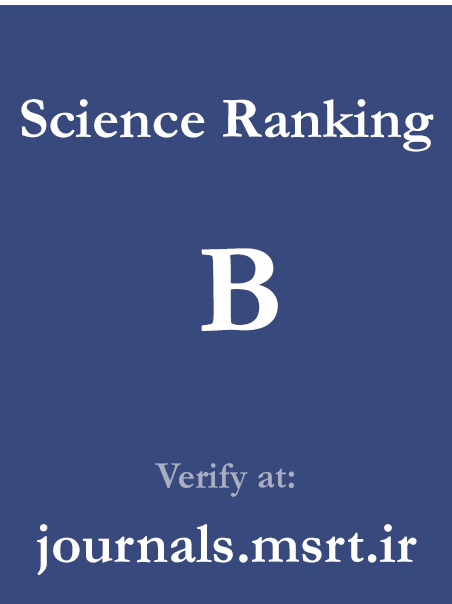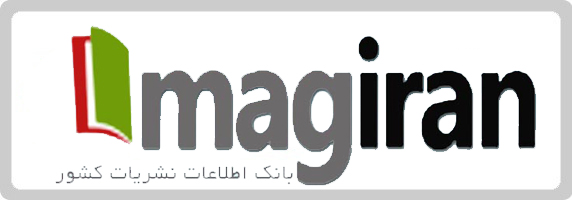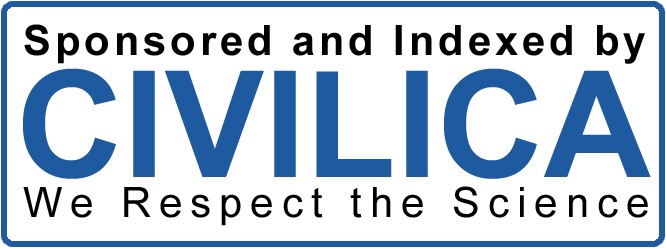Constituent Factors of Intelligence-Based Academic Governance: Developing a Qualitative Framework (Case Study: Comprehensive Universities of Tehran)
Abstract
Downloads
References
1. Edwards M, editor University governance: a mapping and some issues2004; December.
2. William L, Waugh JR. Issues in University Governance: More ''Professional'' and Less Academic. The ANNALS of the American Academy of Political and Social Science. 2003;585:84. doi: 10.1177/0002716202238568.
3. Marginson S. Different roads to a shared goal: Political and cultural variation in world-class universities. In: Wang QCY, Liu NC, editors. Rotterdam: Sense Publisher; 2013. p. 13-33.
4. Trakman L. Modelling University Governance. Higher Education Quarterly. 2008;62(1/2):63-83. doi: 10.1111/j.1468-2273.2008.00384.x.
5. Rowlands J, Tuyet Ngo M. The north and the south of it: Academic governance in the US, England and Australia. Higher Education Research & Development. 2018;37(7):1501-14. doi: 10.1080/07294360.2018.1498462.
6. Chan SJ, Yang CY. Governance styles in Taiwanese universities: Features and effects. International Journal of Educational Development. 2017;63:29-35. doi: 10.1016/j.ijedudev.2017.10.007.
7. Yáñez S, Uruburu Á, Moreno A, Lumbreras J. The sustainability report as an essential tool for the holistic and strategic vision of higher education institutions. Journal of Cleaner Production. 2019;207:57-66. doi: 10.1016/j.jclepro.2018.09.171.
8. Rascão J. The Governance of Data, Information and Knowledge, in the Digital age. American Journal of Humanities and Social Sciences Research (AJHSSR). 2020;4(12):380-412.
9. Oecd. On the Edge: Securing a Sustainable Future for Higher Education. OECD Education Working Papers. 2022;7.
10. Huang F. University governance in China and Japan: Major findings from national surveys. International Journal of Educational Development. 2018;63:12-9. doi: 10.1016/j.ijedudev.2017.05.006.
11. Jaramillo A, Moreno JM, Demenet A, Zaafrane H, Monet O, Trenner S, et al. Universities through the Looking Glass: Benchmarking University Governance to Enable Tertiary Education Modernization in MENA. Washington DC: World Bank Publication; 2012.
12. Dadash Karimi Y, Mirsepasi N, Najaf Beigi R. Designing a Governance Model in the Country's Higher Education. Management of Public Organizations. 2019;7(3):12-28.
13. Fatollahhi A, Yamani M, Sabbaghian Z, Farastkhah M, Ghazi Tabatabaei M. Content Analysis of Iran's Five-Year Development Plans in Light of Higher Education Governance Models. Quarterly Journal of the Iranian Association of Higher Education. 2014;4:47-82.
14. Haririan Tavakoli E, Farasatkhah M, Shirzad Kebria B, Hamidifar F. The Transition from State-Centered Governance to Good Governance in Higher Education: A Grounded Theory Study. Quarterly Journal of Research and Planning in Higher Education. 2023;28(4):11-6.
15. Hatamie D, Kamali H, Roshan A. A Study of Good Governance Experiences in Higher Education of European and North American Countries; Implications for Iranian Higher Education. Research and Planning in Higher Education. 2023;29(1):161-86. doi: 10.61838/irphe.29.1.7.
16. Zaman K. Quality guidelines for good governance in higher education across the globe. Pacific Science Review B: Humanities and Social Sciences. 2015;1(1):1-7. doi: 10.1016/j.psrb.2016.01.001.
17. Sedlacek J. The Impact of Governance on the Research Performance of European Universities in Cross-Country Comparisons. Revies of economic perspectives. 2017;17(4):337-62. doi: 10.1515/revecp-2017-0018.
18. Ahmed AAS, Ali FE, Taha MM. Academic governance strategies and their impact on the quality of educational performance. Academy of Strategic Management Journal. 2023;22(1):1-6.
19. Abello-Romero JB, López D, Ganga F, Mancilla C. Perceptions on regulation and asymmetry of information as critical factors in university governance in Latin America. SAGE Open. 2021;11(2). doi: 10.1177/21582440211023161.
20. Pour Ezzat AA, Abbasi T, Maghsoudi Kenari S, Namdar Jouybari MM. Investigating the Role of Essential Components of Smart Governance in Achieving a Smart City (Case Study: Tehran City). Public Administration Management. 2024;16(3):535-61.
21. Gil-Garcia JR, Helbig N, Ojo A. Being smart: Emerging technologies and innovation in the public sector. Government Information Quarterly. 2014;31:11-8. doi: 10.1016/j.giq.2014.09.001.
22. Gheiravani G, Montazeri M, Zahedi S. Presenting a Model of Factors Affecting Smart Governance in the Country. Value Creation in Business Management Quarterly. 2024;4(1):279-301.
23. Hosseini SA, Ghasemi M, Yaghoobi NM, Salarzehi H. Identifying and Explaining the Antecedents and Consequences of Smart Governance Using the Fuzzy Delphi Method. Journal of Public Administration Perspective. 2022;13(2):91-115. doi: 10.52547/jpap.2021.222712.1081.
24. Hall SG, O'Hare B. A model of the impact of government revenue and quality of governance on schooling. International Journal of Educational Development. 2024;108:103055. doi: 10.1016/j.ijedudev.2024.103055.
25. Schroeder M. The academic governance body: What's its role and who decides? Review of Education, Pedagogy, and Cultural Studies. 2023;46(2):276-94. doi: 10.1080/10714413.2023.2291346.
26. Junfeng S. The Basic Models and Trends of Academic Governance in European Universities. Curriculum and Teaching Methodology. 2024;7(2):23-9. doi: 10.23977/curtm.2024.070204.
27. Kristina DGA. Academic Governance Model for Internationalization of Public and Private Universities in Albay. International Journal of Social Science and Education Research Studies. 2024;4(7):815-21. doi: https://doi.org/10.55677/ijssers/V04I7Y2024-19.
28. Yonezawa A. The Academic Profession and University Governance Participation in Japan: Focusing on the Role of Kyoju-kai. Educational Studies in Japan: International Yearbook. 2014;8:19-31. doi: 10.7571/esjkyoiku.8.19.
29. Nashief M, Al-Sharji AS. Academic Governance in Higher Education Institutions. Route Educational & Social Science Journal. 2019.
30. Munawir M, Raharjo K, Djalil M, Syahputra H, Muslim B, Adam M. Dimensions of identity strength and organizational citizenship behavior (OCB) in establishing good university governance and performance of religious ideology-based higher educations. Journal of Applied Research in Higher Education. 2019;11(2):250-72. doi: 10.1108/JARHE-07-2018-0115.
31. Nandi E. Governance, Performance and Quality in Higher Education: Evidences from a Case Study. Journal indexing and metrics. 2021;19(1). doi: 10.1177/09731849211056380.
32. Wang R, Li J, Shi W, Li X. Application of Artificial Intelligence Techniques in Operating Mode of Professors' Academic Governance in American Research Universities. Wireless Communications and Mobile Computing. 2021;6:1-7. doi: 10.1155/2021/3415125.
33. Clapham A. Undiminishing school governance: investigating 'governance maturity theory' for school governing bodies. Journal of Education Policy. 2024. doi: 10.1080/02680939.2024.2337031.
34. Habibi A, Ahmady S, khoshgoftar Z. Design and development of a governance model for a virtual university in the higher education system of health sciences. Journal of Visualized Medicine. 2024.
35. Lanmatchion E, Adonon BZ, Codjo AC, Glidja J. The Effect of School Governance System on Academic Performance of Students in Public Secondary Schools in Benin. International Journal of Accounting, Finance, Auditing, Management and Economics. 2023;4(5-2):1070-83. doi: 10.5281/zenodo.10051680.
36. Fatanat Fard Haghighi M, Zeinabadi HR, Arasteh HR, Nooh Ebrahim A. Designing a Desired Governance Model in the Higher Education System. Strategic Studies of Public Policy. 2021;11(38):324-46.
37. Homayouni Dehmirchi A, Pourkarimi J, Nooh Ebrahim A, Ezzati M. Identifying the Dimensions and Components of University Good Governance Using a Qualitative Meta-Synthesis Approach. Interdisciplinary Studies of Strategic Knowledge. 2021;11(44):197-232.
38. Rabbani Khah F, Khorsandi A, Tehranchi MM, Ghiasi Nadooshan S, Elyasi M. Explaining the Dimensions and Components of Academic Governance. Higher Education of Iran. 2023;15(3):91-113.
39. Mitchell B. The road to better governance in American higher education 2023. Available from: https://www.forbes.com/sites/forbesbusinesscouncil/2023/05/17/the-road-to-better-governance-inamerican-higher-education/?sh=7a05fc6a41fa.
40. Nurhayati H, Ahmar N. The effect of good university governance on management performance: a literature review. Journal of Social Science. 2022;1(2):56-71. doi: https://joss.al-makkipublisher.com/index.php/js.
41. Parker L. It's Been a Pleasure Doing Business with You: A Strategic Analysis and Critique of University Change Management. Critical Perspectives on Accounting. 2002;13(5-6):603-19. doi: 10.1006/cpac.2002.0561.
42. Giousmpasoglou C. Academic Governance. Thousand Oaks: Sage Publications; 2016. p. 8-14.
43. Nuyten T. Changing the Course of Faculty Engagement in Academic Governance: Reconcilation through Education. The Organizational Improvement Plan at Western University. 2022;310.
Downloads
Published
Submitted
Revised
Accepted
Issue
Section
License
Copyright (c) 2025 Sima Nourozi, Fakhrodin Ahmadi, Hamid Shafizadeh (Author)

This work is licensed under a Creative Commons Attribution-NonCommercial 4.0 International License.




